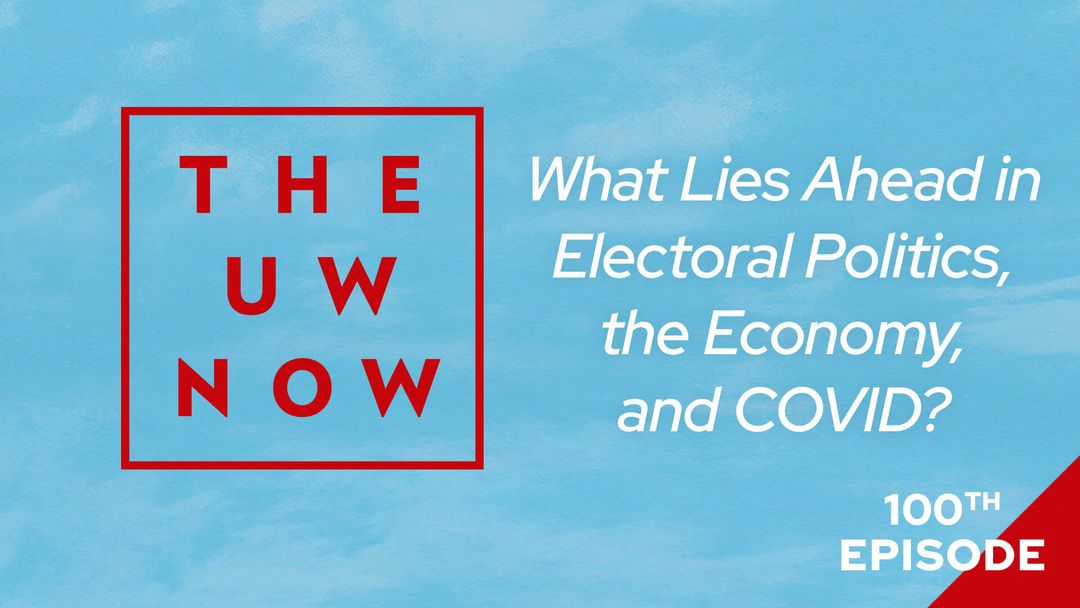In January 2012, Charles Franklin was preparing to leave his position as a professor of political science at UW–Madison and take on the role of chief pollster for the Marquette Law School in Milwaukee. He assumed it would be a fairly quiet transition.
“The law school had started a program in public policy and public affairs in the 2000s,” he says. “I thought we’d spend the spring on sociological issues in the state, family, religion, work, hunting, all of those possibilities. Well, that didn't turn out to be the case.”
In early 2012, opponents of Wisconsin governor Scott Walker launched a recall effort. Shortly after, the state became a battleground in the 2012 presidential election. The Marquette Law School Poll had a “baptism of fire,” as Franklin describes it — “but it was a successful baptism.” The Marquette poll correctly predicted that Walker, a Republican, would survive his recount with a wider margin than he had when he won the gubernatorial election. It then correctly predicted that President Barack Obama and Senator Tammy Baldwin JD’98, both Democrats, would also win the state. Franklin’s polling established the Marquette poll’s reputation, as well as Wisconsin’s status as a “purple” state — one that is neither consistently democratic nor republican.
The Marquette Law School Poll has become a window into the aggregate mood of Wisconsin. On the November 28 episode of The UW Now Livestream, Franklin will join WFAA CEO Mike Knetter and political scientist Ken Goldstein for a discussion of public perceptions of higher education.
Chief Area of Research:
My PhD is in political science and my specialties were survey research, public opinion, and political methodology — advanced statistical methods. My teaching career blended those things with a heavy emphasis on graduate training in statistics and undergraduate teaching in elections and public opinion.
Tonight on The UW Now, I’ll Discuss:
In part, I intend to react to what Ken Goldstein’s going to talk about, because his polling on public attitudes toward higher education is unparalleled. I’ll be very interested in what his findings show. I think what I bring is a longer-run view through polling of controversial issues over higher education, in Wisconsin specifically. We’ve been doing the polling since 2012. I won’t get very historical, but I think I’ll inform current public opinion by what we know from where the state was in 2012 and ’13 and ’14 and ’15, not just where we stand today. Then I expect to discuss some data about where the politics of the state are today and how higher education fits into those politics — not so much the public’s view only of higher education, but the divisions in the state and how those partisan divisions have blended over to include some controversies in higher education. The divisions in the state being what they are, I don’t expect any of these divisions to go away in the short run.
One Thing I’d Like Viewers to Remember Is:
For most citizens, day-to-day contact with any of the universities in the state is distant, rare, maybe limited to sports events. The policy issues and the successes and shortcomings of the university are something that we only learn at a distance, through the conversations of others, including political leaders. That means that the public opinion about higher education is substantially influenced by what public leadership is saying, and to a much smaller degree from direct experience with universities in anything like a day-to-day environment.
To Get Smart Fast, Read:
Well, I do have to toot my own horn. The Marquette poll covers Wisconsin politics and has done 76 statewide polls since 2012 when we began. We’ll do seven more before the election next year. All of our polling and results are completely available on our website.
I think the biggest thing to do, and the real recommendation I would have, and especially for nonspecialists, is to go to either of the two major compilations of polling, realclearpolitics.com or fivethirtyeight.com and look at the last10 or so polls and the average and not focus on a single poll in isolation.
